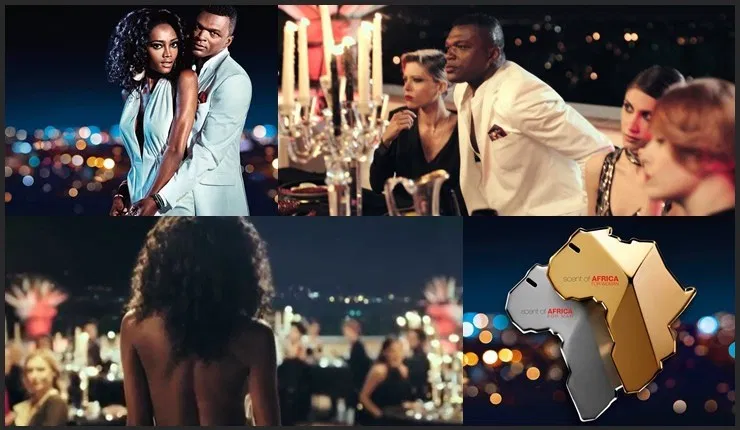
This article is based on my chance encounter with an advertisement celebrating an “African” luxury brand.
Inspired by a recent study by Grace Adeniyi Ogunyankin, this brand, a brainchild of Tanal Ghandour, a Lebanese-Ghanaian and founder of Ghandour Cosmetics exudes power, identity and imagery.
Conceived in a product launch event at the prestigious Kempinski Hotel in Accra, the brand features two African stars. Oluchi Orlandi, a Nigerian super model and TV personality mingling with Marcel Desailly, a French-Ghanaian international football star. Evidently, such fame, according to Ogunyankin “helps to draw attention to the perfume.”
Register for Tekedia Mini-MBA edition 19 (Feb 9 – May 2, 2026): big discounts for early bird.
Tekedia AI in Business Masterclass opens registrations.
Join Tekedia Capital Syndicate and co-invest in great global startups.
Register for Tekedia AI Lab: From Technical Design to Deployment (next edition begins Jan 24 2026).
The choice of brand ambassadors could not have been more adept, as they increase the appeal of diverse audiences.
There are also some instructive sensory cues captured in the sixty-seconds clip i.e. sight, sound and touch. The visual is deft, only two black acts draped in exquisite white, while the White acts are dressed in black – colour switch. The background music is also mellow but sublime – Afrobeats for sound effect. It was also specially produced for the ad. As far as the sense of touch is concerned, “he keeps his left hand in his pocket and puts his right hand on the small of her back, and both her hands are on his back.”
A few quotes from the article are worth highlighting, and especially so considering the implicit (or explicit if you like) innuendoes of race, gender, and identity.
Race
“…the advertisement challenges panoptical time […] through the use of scent and re-writes the narratives that position the African man as a belated monster […] and that locate progress on the African woman’s body. [Posits] that the presence of the white gaze is an “unhappy technology” […] of Afropolitan Imagineering that serves to disrupt the historically privileged invisibility of the white gaze…”
Gender and Identity
Once all the candles are blown out, an image bearing the map of Africa and the words “Scent of Africa for woman” and then “man” appear on the screen. There is a simultaneous female voiceover, stating “Scent of Africa, the new fragrance” then there is a pause as the background music continues to play, and the screen focuses on the two main characters again.
This time, the woman’s arms are resting on the man’s shoulders and loosely wrapped around his neck. They are gazing at each other, nose touching, and it seems like they may kiss—and the voiceover comes on again, ending the commercial with the statement:
“Who I am is where I am from”.
Over the din of Afrobeats, clicking champagne glasses and the tshh-tshh of freshly spritzed cologne, I randomly overheard comments like “This doesn’t happen in Accra” from a passing socialite.
Indeed, the closeness of Oluchi and Marcel, the breeze blowing out the candles at the table are all electric. Yes, Professor Grace Ogunyankin persuasively points out that “the breeze symbolizes the wind of change” as Africa joins the elite club of luxury fashion brands.
Ladies and Gentlemen, introducing the “Scent of Africa” – A symbol of Beauty, Elegance, and Power.
Read more:
Ogunyankin, G. A. (2018). A “Scented Declaration of Progress”: Globalisation, Afropolitan Imagineering and Familiar Orientations. Antipode. 1-21.



